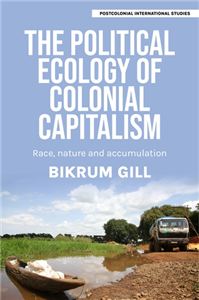Sustainable Ecological Restoration and Conservation in the Hindu-Kush Himalayan Region
A Comprehensive Review
by Zhanhuan Shang, Allan Degen, Devendra Gauchan, Madan Koirala, Muhammad Khalid Rafiq, Awais Iqbal, Binyu Luo, Dawei Zhang, Diwakar Adhikari, Dongmei Li, Furbe Lama, Haonan Guo, Hui Xu, Huma Ali, Jalal Hayat Khan, Jiayi He, Jie Lian, Mei Huang, Monika Ghimire, Narayan Prasad Gaire, Peipei Liu, Qinghui Fang, Ramesh Prasad Sapkota, Ramesh Raj Pant, Rashila Deshar, Ritika K.C, Rui Zhang, Rukhsanda Aziz, Srijana Khanal, Tianyun Qi, Udhab Raj Khadka, Usha Rai, Usman Ali, Wenyin Wang, Xiaoping Jing, Yamuna Ghale, Youyan Liu, Zhen Peng, Zhiqiang Dang
The years 2021 to 2030 have been designated as "The United Nations Decade on Ecosystem Restoration". Ecological restoration and biodiversity conservation efforts face unprecedented challenges, especially in developing countries and areas, such as the Hindu Kush-Himalayan (HKH) region. This huge HKH region, which includes areas in eight separate countries (Afghanistan, Pakistan, Nepal, India, China, Bangladesh, Myanmar and Bhutan), is a biodiversity hotspot with a vast array of ecosystems, landscapes, peoples and cultures. It is known as one of 'the pulses of the world'. However, the HKH is also the world's largest and poorest mountain region, where landscapes and environments have been severely damaged as a result of climate change and human activities. Coordinating conservation and restoration policies, sharing knowledge and funds, and maintaining livelihoods are major challenges and are in urgent need of improvement. This book details the past and current ecological problems in the HKH region, and the threats and challenges that ecosystems and local people face. It pays special attention to developments of transformative adaptations and presents examples of sustainable conservation and ecological restoration management practices. Three primary questions are addressed: (1) Do the existing conservation strategies of international organizations and government policies really protect ecosystems and solve biodiversity problems? (2) Can these management measures be one-time solutions? and (3) What is the strategic framework and scenario prognosis for the future based on the historical trajectory of ecological conservation and restoration in the region? This book is essential reading for ecologists and conservation biologists involved in large-scale ecological restoration projects, along with practitioners, graduate students, policy makers and international development workers.




























